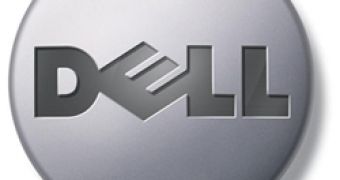The separation between Dell and AMD seems to be yet another storm in a glass of water, as the PC vendor is far to turn its back on the world's number two chip manufacturer. Recent reports show that Dell plans on adding a whole new series of AMD-powered computing systems, based on the chip manufacturer's Tri-Core Phenom processors.
The global launch is scheduled to happen tomorrow and will bring a whole new OptiPlex series of business computing systems. Although the design has not changed much from the old Dimensions C and E series, the changes will be visible only after booting the system.
The new computers are codenamed "Heineken", but they will be commercially known as OptiPlex 740 and 740 Enhanced. While the OptiPlex 740 comes with either a single or a dual-core Athlon 64 and GeForce 6150LE graphics/chipset, the 740 Enhanced model features a brand-new triple-core or quad-core Phenom CPU. The system also includes GeForce 6150LE/nForce 430 motherboards, yet Dell will not introduce the integrated graphics subsystem into the new computers.
The "Heineken" series is only the tip of the iceberg, as Dell plans to introduce even more AMD-based systems. The upcoming back-to-school period will bring on the market the Perseus platform, a combination of triple-core or quad-core Phenom processor, a new chipset and ATI RV7x0 based graphics cards (RV740 for the low-end systems and RV770 for high-end configurations).
Corporate users will take advantage of systems rigged with Nvidia's GeForce 8200 chipset in a mGPU configuration, that is slated to arrive later in the second quarter of 2008. The chipset will come with integrated graphics and will increase the overall graphics performance from the current 6150LE and 6150 (stripped-down versions of the GeForce 6200 chips).
All in all, Dell seems to have changed its mind on dumping AMD. More than that, it has managed to sharpen the competition between Intel's dual-cores and AMD's tri-core processors, and everything seems to be in the sole benefit of the customer. Smart move, right?

 14 DAY TRIAL //
14 DAY TRIAL //